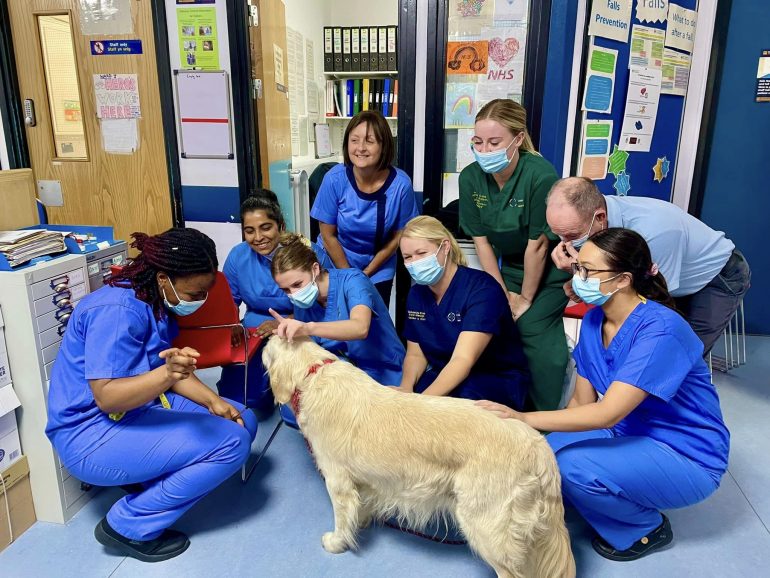Cariad Pet Therapy needs more suitable dogs to help tackle Wales’ rising anxiety – and excessive licking of hands rules some animals out
A THERAPY dog charity is whistling for some calm new recruits as demand for their services soars in post-COVID Wales.
Cariad Pet Therapy provides wellbeing activities across the country, taking therapy dogs to hospital wards, workplaces and homes.
The award-winning charity already has more than 80 dog therapy teams but with rising demand for their services that number just isn’t enough.
“There’s a massive demand and we just can’t meet it,” said Robert Thomas, the charity’s Quality and Development Manager.
To join the charity dogs must pass a 45-minute assessment to make sure they have the right qualities, such as appropriate behaviour in different environments.
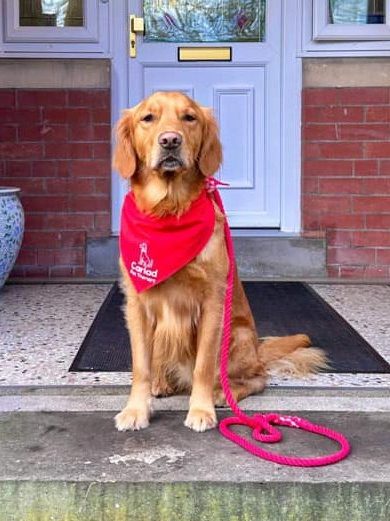
Mr Thomas stressed the importance of knowing and understanding your dog before attending assessments, as they recently faced their first unsuccessful recruitment session.
“We have a database of about 300 inquiries – it’s very difficult,” he said.
“When we were in Swansea doing assessments, we saw about seven dogs and we didn’t pass any of them because we felt they weren’t suitable, and the dogs just wouldn’t enjoy it. This is the first time that’s ever happened to us.”
Their main visiting settings include the NHS, ambulance queues, Amazon, private hospitals and care homes, schools, universities and colleges and the Dogs at Your Doorstep scheme which combats social isolation in the elderly.
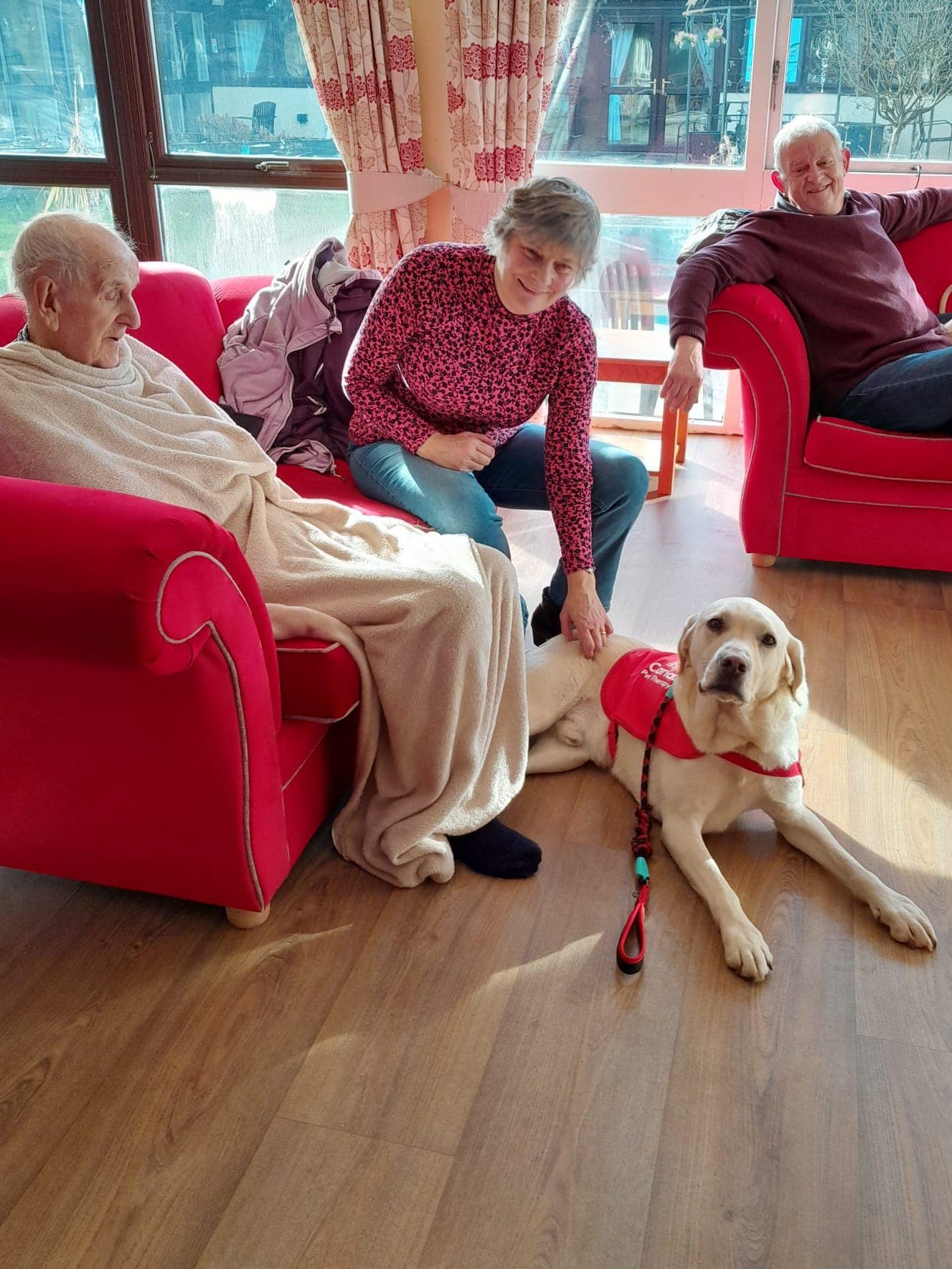
“The dog has to be the best fit to be a therapy dog. That’s really important because in clinical settings you’ve got different smells, different floor surfaces, steps, different kinds of people.
“We want the dogs to show consent to engage in activities rather than a dog being trained to sit for two minutes, which can be passive. They must be happy to meet people from outside of the family unit and they’re nice and calm. The dog needs to be a social butterfly. Some dogs have got it, some dogs haven’t got it.”
Mr Thomas said the main reason for a fail in the assessments are dogs jumping onto strangers, excessive licking of hands, being overexcitable and generally not being able to settle.
“We value our volunteers really highly and their dogs because we can’t have an organisation without them.”
Joanna Bagwell has volunteered her pet Shih Tzu, Ruby, as a therapy dog for the last four years and visits a care home in Barry two to three times a month. As a counselling student, she saw the benefits of companionship and decided to volunteer Ruby after noticing her calm manner.
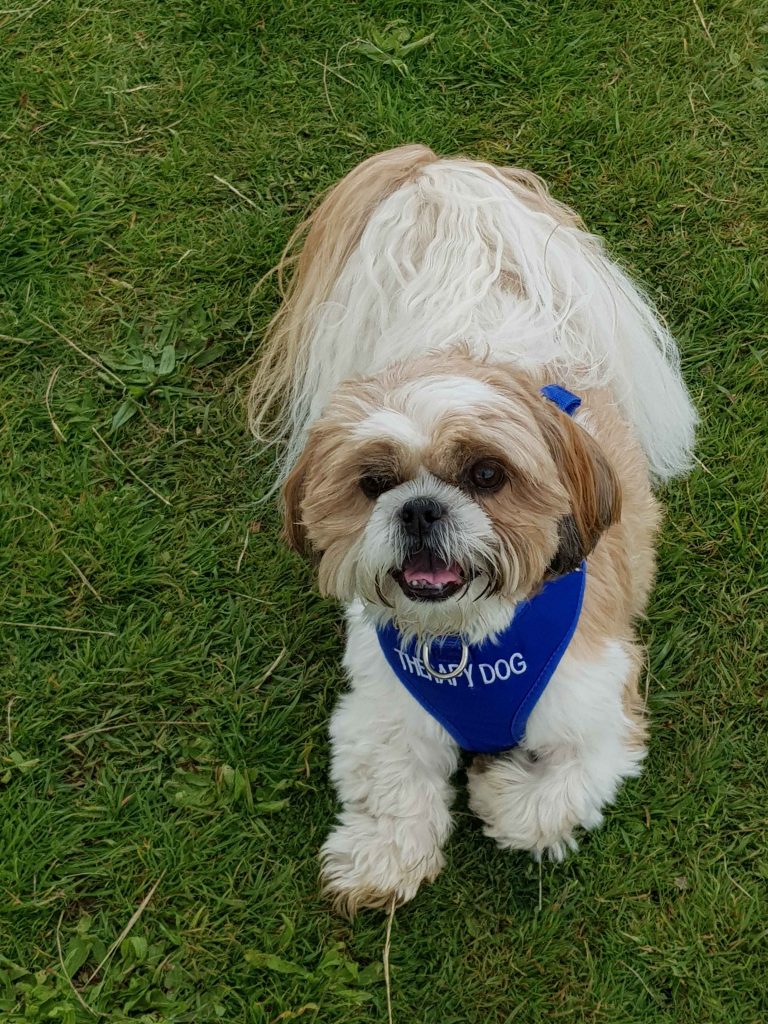
“As a counselling student, I saw many dementia patients who didn’t get many visitors or, in many cases, had given up their pets to be in full time care. I was blessed, I saw something in Ruby that I knew was beneficial, because I know what effect she has on me when I’m stressed and upset. I just put two and two together.”
Ruby was in and out of hospital as a puppy and was used to interacting with different people. Ms Bagwell believes this contributed to Ruby becoming a “very calm and placid dog”.
She said: “The residents love having Ruby around; it gives them a sense of normality. Even those who suffer from dementia – they may not remember Ruby’s name, but they remember the dog visiting and its calming effect.”
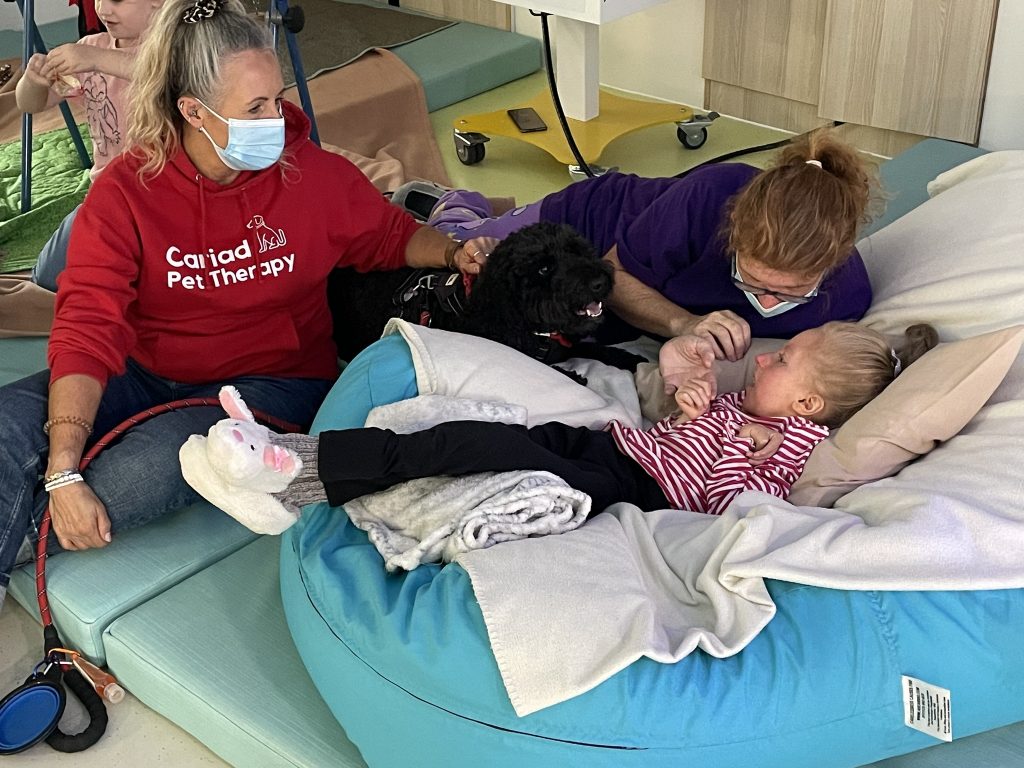
Pet therapy has been proven to have many benefits for mental health. It helps people to feel calm, provides comfort, helps soothe emotions, reduce boredom, lower anxiety levels and bridge communication gaps.
Debbie Williams, from Canton, suffered a traumatic brain injury 42 years ago and regularly visits Cardiff Dogs Home Rescue Hotel, in Penarth, to improve her mental health after her therapy cat died.
“A support worker takes me twice a month and it’s just so relaxing,” she said.
“Animals tend to just know when someone’s unhappy and are non-judgmental about it. For example, my therapy cat used to know when I was anxious or distressed and he’d instantly make me feel better.”
“It gives me something to get up for in the morning and gives me responsibility. It’s beneficial for both of us in so many ways.”
Greta Jones works as an occupational therapist on a dementia ward in Cardiff and frequently has therapy dogs visiting.
“Everyone on the team looks forward for the dogs to come. I’m not really a dog person but you can’t help but smile when the dogs arrive. Everyone benefits from the dogs, especially nowadays when the NHS staff are really struggling, it really relieves the stress.
“Seeing the dementia patients interact with the dogs is something incredibly special. Quite often it unlocks happy memories – it’s like a switch is flicked and they’re back with the pets they had in the past. The most spectacular thing is the reaction of the non-verbal patients.”
“It means a lot to the staff and, obviously, even more to the patients.”
To find out how to apply to Cariad Pet Therapy visit their website or ring their head office on 01437 723628 and speak to one of the team for more details.
More information on the recruitment process can be found here.


